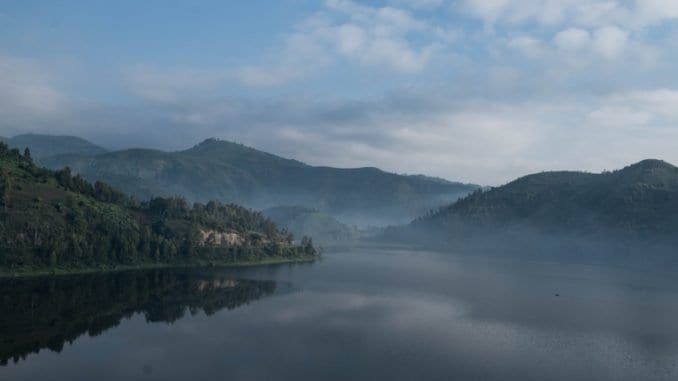
In its third year, Saveur du Kivu celebrates the diversity of coffees coming from the Democratic Republic of Congo and puts farmers face to face with buyers and importers.
BY ASHLEY RODRIGUEZ
BARISTA MAGAZINE ONLINE
Photos by Clay Enos
On May 23, the third annual Saveur du Kivu kicks off, celebrating the growth and diversity of specialty coffee in the Democratic Republic of Congo. The event, which takes place in Bukavu, just southeast of Lake Kivu, is a celebration of the beautiful coffees coming out of the DRC. Saveur du Kivu will bring together roasters, importers, and coffee farmers to cup coffees, collaborate, and discuss the strengths and struggles of growing coffee in the Congo.
“[Saveur du Kivu] brings together like-minded people to spend time with producers, share ideas, and cup coffee,” shares Baraka Kasali, country manager for the Eastern Congo Initiative (ECI), a grant-making and advocacy group aimed at bettering the outcomes of Congolese citizens by focusing their efforts on grassroots and local organizations. “ECI started as a pipe dream that we could do something to contribute towards social and economic development in the Congo,” Baraka notes of the organization, which works on Saveur Du Kivu in partnership with Elan RDC, On The Ground Global, Catholic Relief Services, and Twin Trading, and has forged partnerships with companies like Starbucks to highlight the coffees coming out of the DRC. “We wanted to engage with farmers and put them in front of businesses that wanted to invest in great products,” Baraka says.
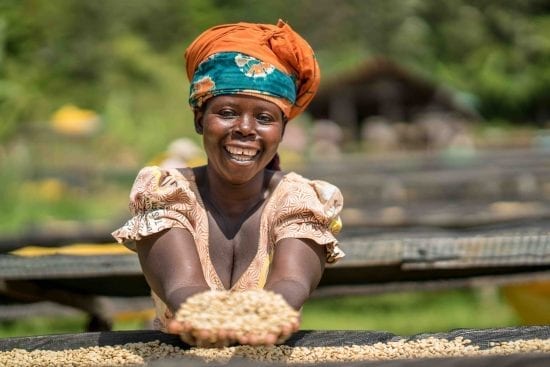
Baraka says that after years of building partnerships with buyers and roasters, it became clear that the best way to promote Congolese coffee was to get buyers in the same room as producers. “If we’re going to promote Congolese coffee, then the Congolese producer has to be front and center,” says Baraka, and that’s when the Saveur du Kivu event was formed. The three-day event will include cuppings, lectures, and discussions that allow farmers to engage with roasters and buyers to understand how their coffees translate to consumers. “We wanted to bring all the stakeholders together across the coffee supply chain and make sure that the Congolese farmer is at the table,” Baraka notes, “[and] farmers can understand how the larger coffee community appreciates their coffee.”
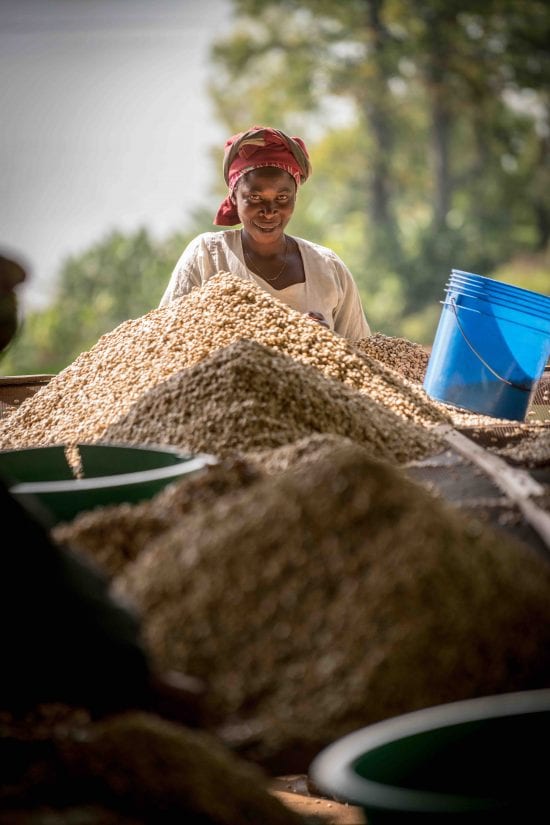
The Eastern Congo Initiative has focused its efforts in a number of ways to help Congolese farmers realize the full worth of their coffees. Along with events like Saveur du Kivu, ECI has worked on social empowerment initiatives aimed specifically at Congolese women, who make up 80 percent of the coffee labor force but are only 1 percent of landholders, meaning they often don’t realize the economic worth of their labor. “Over the last five years, what became clear is that when you go to washing stations, the bulk of the work being done is done by women. When you go to collection stations, the work is done by women. But when you go to sell coffee, that work is done by men,” Baraka shares.
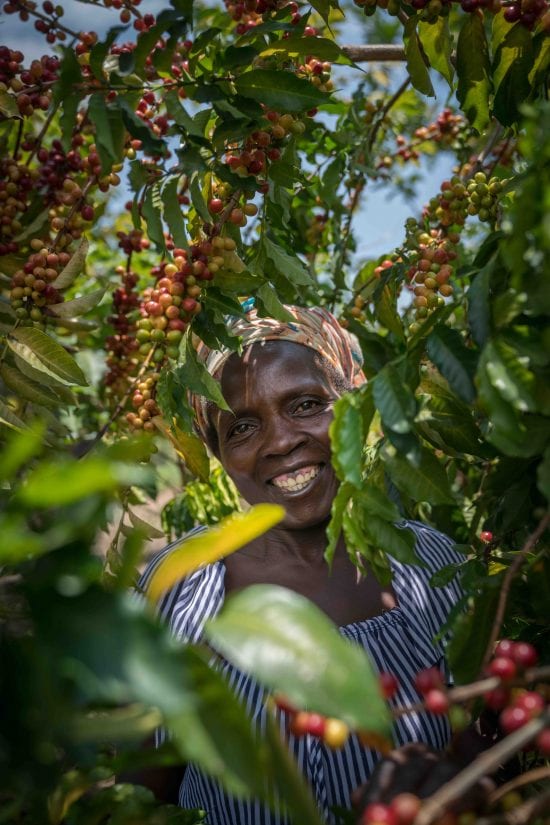
ECI aims to bring women into the larger coffee picture because the lives of farmers and communities improve when women are at the table. “When women made decisions about what was done with the money being brought into the household, that expense was much more beneficial to the whole household. Women were more likely to make sure that school expenses were made, medical expenses were taken care of, and there was food in the household,” Baraka notes. One of the ways ECI has encouraged women is through small gestures aimed at empowerment and sharing experiences. “We created a WhatsApp group where women could just talk to other female farmers … they started to talk about land issues. When they didn’t own the land, they didn’t have as much of a say in household income.” As women became more empowered to take ownership, they also felt more empowered to take control over other avenues of their lives. “They have this term that they used which translates to, ‘the woman who waits for things.’ Before they were introduced into this specialty coffee space, they were these women that would wait for things. They’d wait for their husbands to buy them things like makeup or a dress … now they are no longer the women who wait,” Baraka says.
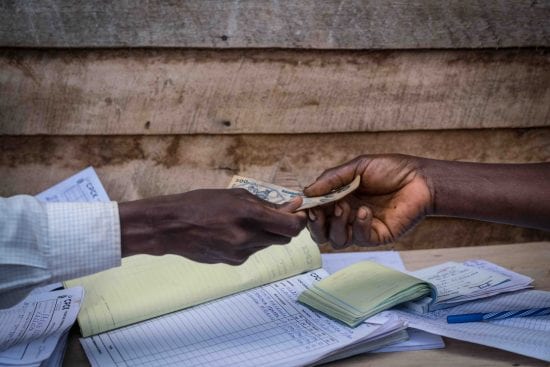
In this iteration of the Saveur du Kivu, roasters and buyers will not only get the chance to meet some of these female farmers, but will also get to explore the diversity of the coffees coming from the Congo. This year’s Saveur du Kivu will feature a coffee atlas of the country, showing where specific coffees are coming from and the growing conditions that contribute to their unique profiles. This is something Baraka noticed from talking to other roasters and buyers at the last Saveur du Kivu. “Several roasters, when I asked them what their favorite coffees are—I expect them to say what finishes first—they then say something else. They said that they saw potential in one coffee or another for a particular application in their coffee program. What that showed us is that there’s differentiation in Congolese coffees. There’s a lot of diversity.”
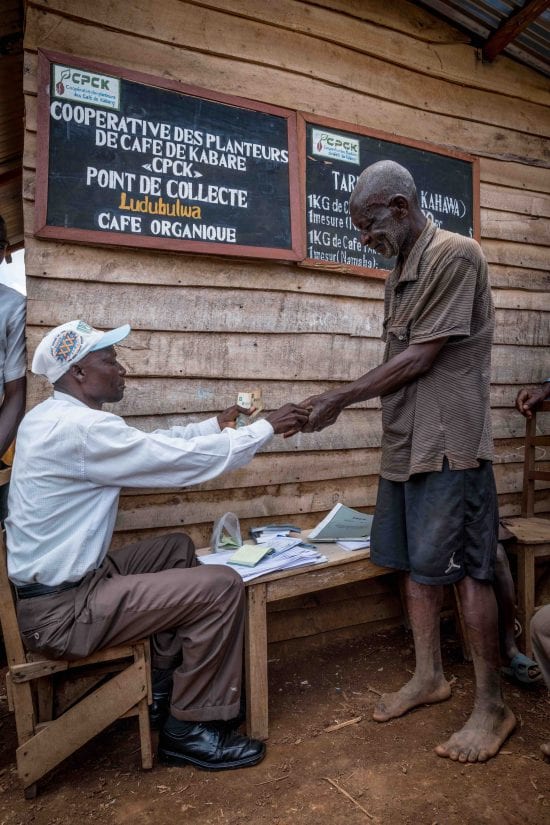
The Democratic Republic of the Congo might not be a coffee-producing country you’re familiar with, but the ECI and Saveur du Kivu are hoping to change that and bring the DRC up to the level of quality and production of other East African coffee countries. “Other East African coffees have gotten into the specialty market a lot earlier … it’s just now that Congolese farmers have seem value in differentiating their product,” Baraka notes. Saveur du Kivu is one step in the right direction of improving quality and bringing attention to the beautiful coffees growing in the region, and there are hopes to bring more quality initiatives into the country, like certifying Q graders and bringing in younger coffee plants to replace the aging trees in the region. But in its infancy, Saveur du Kivu has already seen a dramatic increase in quality and outcomes for farmers. “Every cup of coffee poured and celebrated at Saveur Du Kivu is a victory for Congolese farmers and we are incredibly proud, along with our partners, to play a small role in their story,” shares Dane Erickson, managing director for ECI.
You can find out more about Saveur du Kivu and continued coverage of the event by visiting www.saveurdukivu.org.


Is this coffee available in the United Kingdom? If so, where?